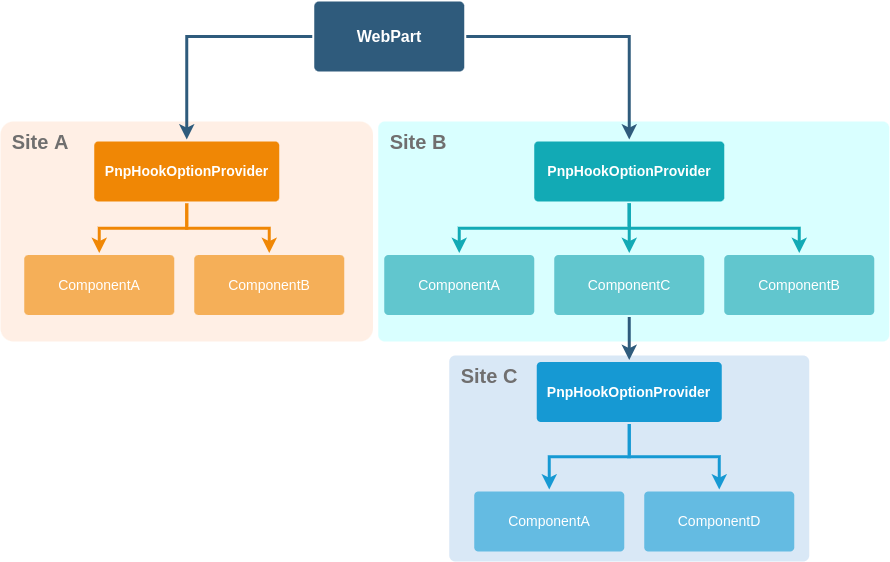Advanced
Using dependency list parameter
All hooks supports custom dependency array similar to React's built-in hooks but unlike React, some parameters tracked internally and adding these parameters to array is not required. Hooks auto refreshes when any meaningful changes happened on parameters.
Auto tracked parameters are marked with 🚩 symbol on the docs.
let title = "My List";
// myList refreshes when `title` and query changes.
const myList = useList(title, {
query: {
select: ["Title"]
}
});
const unnecessary = useList(title, {
query: {
select: ["Title"]
}
}, [title]); // passing title and query is not required. They are already tracked internally.
let refresh = {};
const forcedRefresh = useList(title, {
query: {
select: ["Title"]
}
}, [refresh]); // You can always force refresh with your custom variables.
Behaviors
Hooks supports PnPJs v3 behaviors for both local and global scope.
Global
export default class PnpReactHookExamplesWebPart extends BaseClientSideWebPart<IPnpReactHookExamplesWebPartProps>
{
private _hookOptions: PnpHookGlobalOptions;
protected onInit(): Promise<void>
{
return super.onInit().then(() =>
{
// Simply initialize spfi with your custom behaviors
const sp = spfi().using(SPFx(this.context), Caching(), MyCustomBehavior());
// Create global options object.
this._hookOptions = {
sp: sp
};
});
}
}
Local
export default function useWhoAmI()
{
const user = useCurrentUser({
behaviors: [Caching(), MyCustomBehavior()]
});
// useProfile is not affected by Caching() and MyCustomBehavior()
const profile = useProfile(user?.LoginName, {
disabled: "auto"
});
return [user, profile];
}
The behaviors property doesn't override your global behavior configuration, it only appends behaviors to hook's inner queryable instance.
Configure for multiple sites
Multiple PnpHookOptionProvider can be created with different spfi context to access multiple sites. Also, each hook function has a sp option to override spfi.
export default function WebPart()
{
// Creating different zones and configurations with PnpHookOptionProvider element.
return (
<>
{/* Site A */}
<PnpHookOptionProvider value={{sp: spfi_siteA}}>
<ComponentA />
<ComponentB />
</PnpHookOptionProvider>
{/* Site B */}
<PnpHookOptionProvider value={{sp: spfi_siteB, keepPreviousState: true}}>
<ComponentA />
{/* Site C */}
<PnpHookOptionProvider value={{sp: spfi_siteC, disabled: "auto"}}>
<ComponentA />
<ComponentD />
</PnpHookOptionProvider>);
<ComponentB />
</PnpHookOptionProvider>
</>);
}

Accessing options
Hook options are accessible via usePnpHookOptions. This can be useful when creating derivative of options or accessing to spfi.
PnP React hooks only provides functions to read data but you can access the underlying spfi context to interact with other PnPjs functions.
import "@pnp/sp/lists";
import "@pnp/sp/items";
import { usePnpHookOptions } from "pnp-react-hooks;
function ExampleComponent()
{
// get options from nearest parent provider.
const options = usePnpHookOptions();
const onClick = () =>
{
options?.sp.web.lists.getByTitle("My List").items
.add({ Title: "New Item" })
.then(console.log)
.error(console.error);
};
return (<button onClick={onClick}>Add New Item</button>);
}